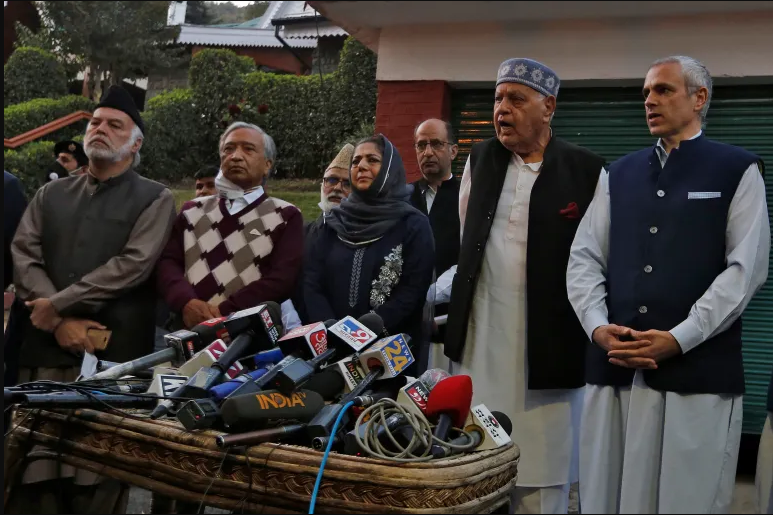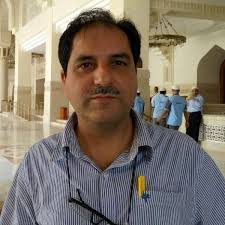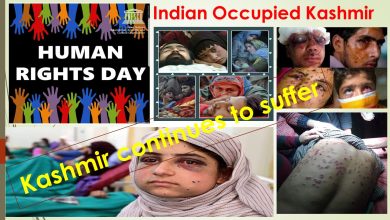
 As the world’s longest election process in India, spanning 73 days and encompassing seven phases is ending, a concerning reality has emerged regarding the treatment of the Muslim community by various political parties. The final phase of voting is scheduled for Saturday (today), with results expected on June 4.
As the world’s longest election process in India, spanning 73 days and encompassing seven phases is ending, a concerning reality has emerged regarding the treatment of the Muslim community by various political parties. The final phase of voting is scheduled for Saturday (today), with results expected on June 4.
The ruling Bharatiya Janata Party (BJP), even Prime Minister Narendra Modi himself, prominently utilized the Muslim community as a focal point in its campaign as it vied for a third term in the 2024 elections.
Historically, the BJP has harnessed a combination of issues – protection of cows, Pakistan, and Muslims – to galvanize support. While the first two themes resonated in the 2014 and 2019 elections, this year it looked like the focus was entirely on Muslims.
Prime Minister Modi did attempt to link the opposition Congress party with Pakistan, drawing parallels between its manifesto and the Muslim League. This tactic, however, did not gain substantial traction with the electorate, and the focus was again shifted towards amplifying fears among the Hindu majority about the Muslim minority.
At a campaign rally on April 21, 2024, Modi controversially referred to Muslims as “infiltrators,” later intensifying his rhetoric by claiming that a Congress-led government would redistribute Hindu wealth to communities that “have too many children,” an apparent coded reference.
This strategy has had a broad impact, leading even secular parties to distance themselves from fielding Muslim candidates. The Congress party has conspicuously avoided mentioning “Muslims” in its election manifesto.
A glance at India’s electoral map underscores the strategic importance of the Muslim vote.
Out of 543 Lok Sabha seats, Muslims represent 15% and more of the electorate in 161 seats. In the parliamentary elections under the first-past-the-post system, a vote share of 15% is crucial as the winning candidate often gets 25-30% of the votes in multi-cornered elections.
There are 86 seats with a Muslim population share of 20% or more and 16 constituencies in which the share of Muslims is over 50%.
Fewer Muslim candidates
Despite this, secular parties largely refrained from nominating Muslim candidates, asking for their support without giving them due political representation.
In terms of candidature, the Congress party has fielded 328 candidates, of which only 19 are Muslims, marking a decline from previous years.
This is a decrease from 31 and 34 Muslim candidates fielded in 2014 and 2019 respectively. The Samajwadi Party of Uttar Pradesh, a party that relies on Muslim votes, nominated 71 candidates, of whom only four were Muslims, compared to eight in 2019.
In Bihar, Lalu Prasad Yadav’s Rashtriya Janata Dal (RJD) fielded only two Muslim candidates for the 24 seats it is contesting in an alliance with the Congress party.
The Left parties have given tickets to 10 Muslims out of the total 82 candidates.
The ruling BJP, which is contesting for 440 seats, nominated only one Muslim candidate, M Abdul Salam from Malappuram in the southern state of Kerala. During Modi’s roadshow in Kerala, Salam was kept away and avoided pictures or videos with Modi that might have angered the party’s core constituency.
Rise to power in 2014, the Muslim vote has been systematically devalued. Secular parties, now wary of antagonizing Hindu voters, are keeping a wide berth from Muslim candidates.
Modi and his strategist Amit Shah have perfected a formula to neutralize the Muslim vote. They encourage numerous independent Muslim candidates to contest in Muslim-majority constituencies to fragment the electorate. Moreover, secular parties also nominated Muslim candidates to further divide their votes.
On the other hand, the BJP goes to consolidate the Hindu vote by instilling a dose of Hindutva and fear of Muslims in them.
As a result, the BJP managed to win 38 of the 86 Muslim-majority seats in 2014 and 36 in 2019.
Secular party leaders justify fielding fewer Muslims by citing recent state elections in Bihar and West Bengal, where Muslims predominantly supported secular Hindu candidates, demonstrating a strategic voting pattern.
This election cycle also shows that whenever the Muslims prove their electoral strength, the Hindu vote tends to be polarised against them.
This is a question that Muslim leaders need to ponder over. Why have they failed to reach out to the Hindu majority population, especially the lower castes, and allay their fears about their religion?
Amidst these dynamics, a survey found that 61% of Muslims believe their economic situation has worsened since 2014, compared to 35% of those from other religions. This indicates a trend of strategic voting among Muslims, who face significant socio-economic challenges.
BJP and Muslims
Since 1996, as per election data, the BJP has been getting 2% of Muslim votes, which jumped to 7% in 2019. Off late, the BJP leaders had been also trying to reach out to Muslims. According to a Muslim office-bearer in the BJP, they had been told to get 15% Muslim votes for the party in the 2024 elections.
They coined the slogan “Sabka Saath, Sabka Vikas” (development for all) to convince Muslims that they are included in the welfare programs.
However, the tactic of targeting Muslims thwarted these efforts. Experts say, the party’s decision not to field candidates in the Muslim-majority constituencies in Kashmir further hurt this outreach.
The Muslim office-bearer in the BJP said that they had been advised not to look at Muslims as a single group but to see them through the lens of different sects and castes and devise separate strategies for the Deobandi, Barelvi, and Shias.
They were also asked to focus on the Pasmanda Muslims (backward Muslims) as the caste system is as prevalent among the Muslims as it is among the Hindus. The only difference is that, unlike Hindus, Muslims do not practice untouchability.
They have been asked to pit backward Muslims against the elite.
Modi himself had swung to reach out to the Bohra Muslims. Defence Minister Rajnath Singh was told to reach out to Shia Muslims.
He succeeded in getting a firebrand Shia cleric from Lucknow, Sayyid Kalbe Jawwad, to tie an Imamzamin or amulet on his arm. Singh is also a candidate from Lucknow. This tying of amulet was to send a signal to the Shia voters.
Elite v/s backward Muslims
No less than 57% of India’s 200 million Muslims belong to the backward classes. An insider in the BJP told this author that the voting behaviour of backward Muslims in these elections will determine the BJP’s future strategy towards Muslims.
Although the BJP has been playing a backward versus elite game for many years, the general attitude of Hindu nationalists’ towards Muslims was summed up decades ago by Sardar Vallabhbhai Patel, India’s first home minister, and deputy prime minister, in a meeting with noted poet Josh Malihabadi.
Josh writes in his autobiography “Yadoon Ki Baarat” that Patel told him that he did not despise the Muslims who came from outside, for example from Central Asia or the Arab countries, and settled and ruled India over the centuries.
Patel said that he despised those lower-caste Hindus who converted to Islam and thought they could now compete with others (upper-caste Hindus). According to Josh, Patel even labelled these converted Muslims as rioters, evil and corrupt.
But Modi, unlike his political master Patel, has chosen a different strategy by taking backward Muslims to his side and turning them against the so-called elite Muslims. The Muslims themselves give their opponents such a handle by remaining entrenched in their caste identities. Ironically, the BJP while opposing the reservation based on religion despises the same group that it tries to entice.
As India aspires to reach ambitious economic goals, the inclusion and advancement of its 200 million Muslim population are imperative for holistic growth. The new government must develop programs that enable Muslims to make a meaningful contribution to the country’s economy rather than making them an election issue.
They must be placed on an equal footing with followers of other religions. Without the progress of such a large population and an element of compassion for them, India’s economic goals will remain unfulfilled.
Source: https://kashmirtimes.com/








